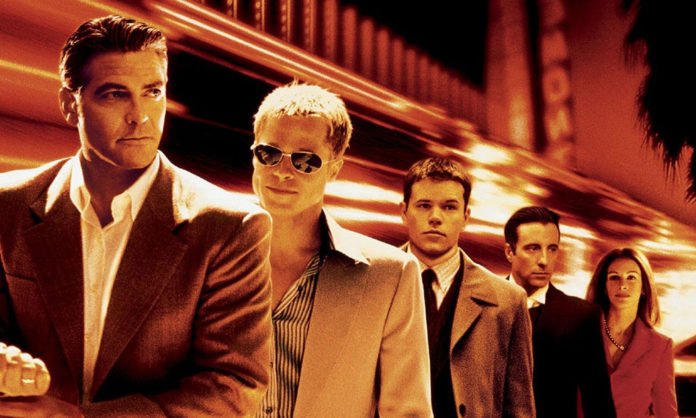In a post on LitReactor, Peter Derk says a lack of character development in a story doesn’t have to be a deal-killer. “‘Lack of character development’ is a great thing to put on a negative review because it makes it sound like you know what you’re talking about when you definitely don’t know what you’re talking about,” he says. “It’s the new ‘didn’t pass the Bechdel Test, therefore is bad.'”
A lot of great stories don’t have a lot of character development. Ocean’s 11 was a popular film, but its characters don’t change much from beginning to end. “If you write a fast-paced book where the plot is the centerpiece, you might not need much character development,” Derk notes. “If the guy I’m reading about spends a good chunk of the story under a hail of gunfire, I don’t need a chapter where he thinks back on his relationship with his mother and how he could’ve done things differently.”
In some cases, the character shouldn’t change. “Sometimes, the character is the anchor, the unchanging center, and that gives us a consistent measure of how bonkers, how dangerous, or how difficult things really are,” Derk explains. Horror films and franchises are good examples of stories that have lead characters who have a lot of experiences in 2 hours but not a lot of emotional growth.
You may also be writing a story where a character doesn’t improve. “Life events don’t put everyone in a better place,” Derk says. “Before you complain about a lack of character development, check and see whether the character DID develop, just not in the way you would have preferred. Or, maybe the deepening of the character revealed them to be worse, and you’re not used to reading that as development.”












